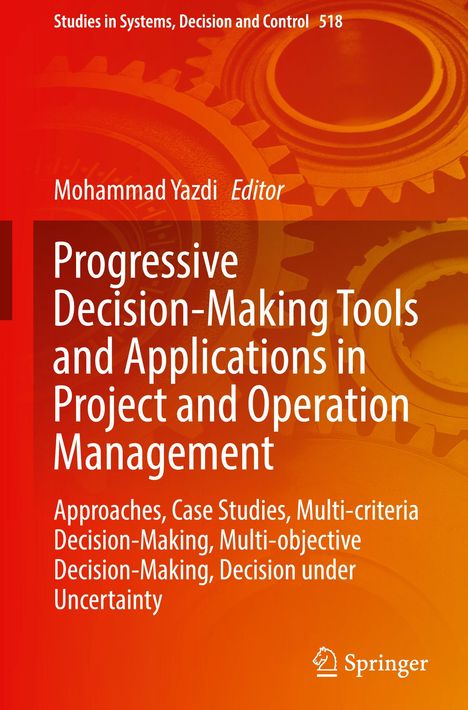Klappentext
In today's complex operational environments, leveraging advanced decision-making tools becomes imperative, particularly in uncertain scenarios. This book deepens the nuances of employing state-of-the-art decision-making methodologies within various industrial sectors for optimal project and operations management. The essence of integrating these advanced tools is to equip professionals with pivotal insights for cost-effective management and to strategize against potential operational shortcomings. Furthermore, the methodologies elucidated provide a robust foundation for crafting informed, risk-centric strategies that uphold the integrity of operations across diverse application domains. Readers will discover a rich tapestry of methodologies tailored for engineers and analysts. Deeply rooted in mathematical modeling, these approaches are complemented by human judgment and participation. Fundamental attributes of these methods include the evaluation of alternatives, benchmarking againstcriteria, assigning scores based on varying requirements, and assigning weights to denote the significance of individual criteria vis-à-vis others. The book embarks on a structured journey, commencing with a comprehensive review of evolving decision-making methodologies in project and operations management, enriched by metadata analysis. Subsequent chapters are meticulously organized, each spotlighting a distinct approach. Topics span foundational concepts in decision-making, the nuances of performance metrics in the digital age, and the implications of emerging technologies on operations management. Targeted towards professionals and researchers immersed in project and operations management, this work will also immensely benefit postgraduate and undergraduate students in related fields. Moreover, its relevance extends to professionals across diverse sectors, from oil and gas, marine and offshore, and renewable energies to chemical complexes, manufacturing, and healthcare systems.


